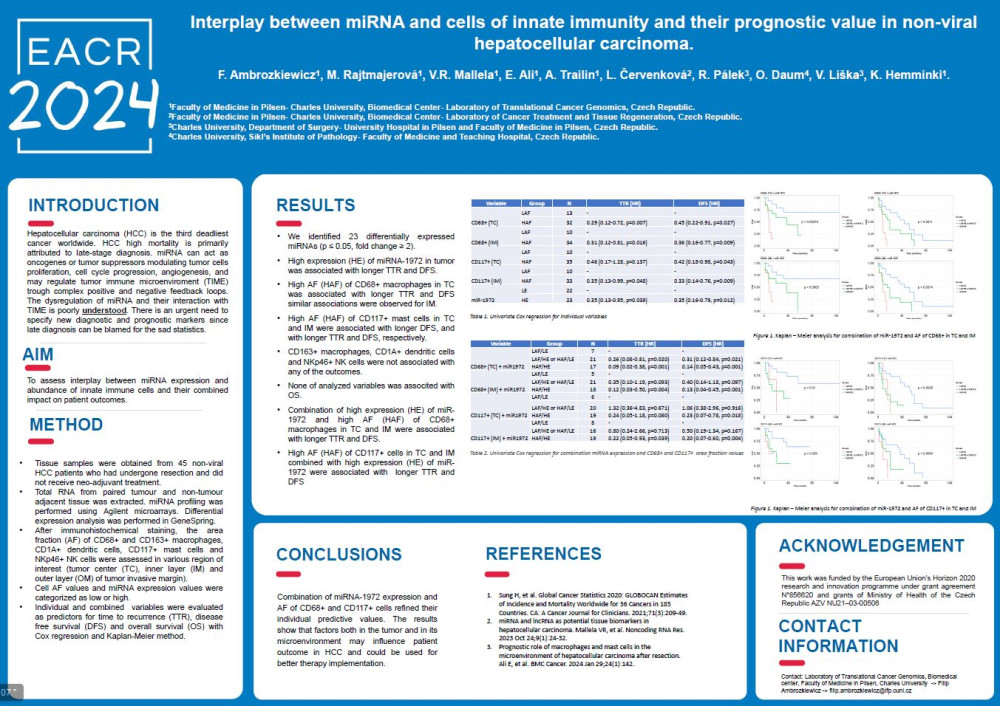Filip Ambrozkiewicz – member of the Translational Cancer Genomics laboratory – attended the EACR 2024 Annual Congress in Rotterdam, Netherland and presented poster entitled “Interplay between miRNA and elements of innate immunity and their prognostic value in non-viral hepatocellular carcinoma”.
Hepatocellular carcinoma (HCC) is the third deadliest cancer worldwide. Its high mortality is primarily attributed to late-stage diagnosis. The dysregulation of miRNA and their interaction with tumor environment is poorly understood. As a novel approach, we wanted to assess interplay between miRNA expression and abundance of innate immune cells and their combined impact on patient outcome. We identified 23 differentially expressed miRNAs (p ≤ 0.05, fold change ≥ 2). High expression of miRNA-1972 in tumor was associated with longer TTR (HR: 0.35, p=0.039) and DFS (HR: 0.35, p=0.012). Among the analysed immune cells high AF of CD68+ macrophages in TC was associated with longer TTR (HR: 0.29, p=0.007) and DFS (HR: 0.45, p=0.027), similar associations were observed for IL (HR: 0.31, p=0.016 and HR: 0.36, p=0.009 respectively). High AF of CD117+ mast cells in TC were associated with longer TTR (HR: 0.35, p=0.048), and CD117+ mast cells in IL were associated with longer TTR (HR: 0.42, p=0.043) and DFS (HR: 0.33, p=0.009). Combination of high expression of miR-1972 and high AF of CD68+ macrophages in TC and IL were associated with longer TTR (HR: 0.09, p=0.001 and HR: 0.12, p=0.004) and DFS (HR: 0.14, p=0.001 and HR: 0.13, p=0.001). High AF of CD117+ cells in TC and IL combined with high expression of miR-1972 were associated with DFS (HR: 0.23, p=0.018 and HR: 0.20, p=0.004 respectively).Combination of miRNA-1972 expression and AF of CD68+ and CD117+ cells refined their individual predictive values. The results show that factors both in the tumor and in its microenvironment may influence patient outcome in HCC and could be used for better therapy implementation.

